Production and Inventory Control in Food & Beverage Manufacturing
Production and inventory control are foundational to operational success in any manufacturing environment, but in the food and beverage industry, they take on even greater importance. With consumer demand shifting rapidly, strict quality standards to meet, and the added challenge of perishability, production planners in food and beverage manufacturing must navigate a complex landscape.
Integrating advanced planning tools like PlanetTogether with ERP systems such as SAP, Oracle, Microsoft Dynamics, Kinaxis, or Aveva can help streamline processes, optimize production schedules, and improve inventory control.
In this blog, we’ll look into how production and inventory control can be enhanced in food and beverage manufacturing through strategic integration, the benefits of incorporating advanced planning and scheduling (APS) tools, and best practices for implementing an integrated solution.
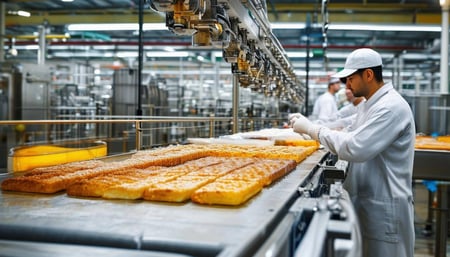
The Importance of Production and Inventory Control in Food & Beverage Manufacturing
Production and inventory control in food and beverage manufacturing is about striking a balance between supply and demand while ensuring product quality and meeting regulatory standards. The following challenges underscore the importance of this balance:
Perishability and Shelf Life: Unlike other industries, food and beverage products have limited shelf lives, which necessitates precise production and inventory control.
Demand Fluctuation: Seasonal changes, promotional campaigns, and shifting consumer preferences can cause demand to vary significantly.
Regulatory Compliance: Food and beverage manufacturers must meet stringent regulatory requirements for food safety, traceability, and labeling.
Resource Optimization: Effective use of resources, from raw materials to production machinery, is vital for maintaining profitability in an industry with narrow margins.
Given these complexities, production planners in this industry are under constant pressure to optimize inventory levels, minimize waste, and ensure timely production—all while balancing operational efficiency and compliance. This is where advanced planning tools like PlanetTogether come into play.

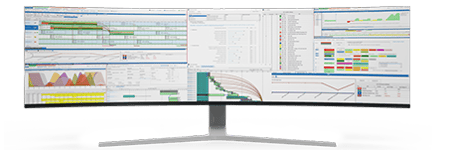
Integrating PlanetTogether with ERP Systems: A Game-Changer for Production Planners
PlanetTogether is an advanced planning and scheduling (APS) software that enhances production planning by enabling planners to create optimized schedules, manage constraints, and respond dynamically to changing demands. When integrated with ERP systems such as SAP, Oracle, Microsoft Dynamics, Kinaxis, or Aveva, PlanetTogether becomes even more powerful, providing a real-time, comprehensive view of production and inventory control.
Here are some of the core benefits that this integration offers:
1. Real-Time Data Synchronization
ERP systems like SAP and Oracle store critical data related to inventory levels, order demands, and production capacity. By integrating this data with PlanetTogether, production planners can access real-time information, leading to more accurate planning and improved responsiveness.
With synchronized data, planners can make real-time adjustments to production schedules based on inventory availability, machine status, or unexpected demand shifts.
2. Enhanced Forecasting and Demand Planning
ERP systems, when paired with APS tools like PlanetTogether, provide a complete view of historical data and sales forecasts. This enables more accurate demand forecasting and proactive inventory management.
By integrating these platforms, planners can assess future demand and adjust production schedules accordingly, reducing instances of stockouts or overproduction, which is especially critical in the food and beverage industry.
3. Improved Inventory Management and Reduction of Waste
Managing inventory efficiently is vital for any food and beverage production planner. An integration with PlanetTogether enables planners to accurately track inventory levels, expiration dates, and replenishment needs.
ERP systems update inventory counts in real time, while PlanetTogether leverages this data to optimize production schedules, reducing excess inventory and minimizing waste due to spoilage.
4. Streamlined Production Scheduling
Production planners often need to juggle multiple production lines, machines, and workstations. PlanetTogether, integrated with an ERP system, can optimize scheduling based on resource availability, work-in-progress inventory, and priority orders.
The system can automatically adjust schedules based on constraints or disruptions, allowing for greater flexibility in handling last-minute changes or rush orders without compromising overall efficiency.
5. Increased Collaboration Across Departments
A unified view of production and inventory data facilitates collaboration across departments, including procurement, quality control, and sales. For example, the procurement team can adjust orders based on updated production plans, while sales can provide more accurate delivery timelines to customers.
By integrating PlanetTogether with ERP, teams can access a single source of truth, which minimizes communication gaps and reduces the risk of misalignment between departments.
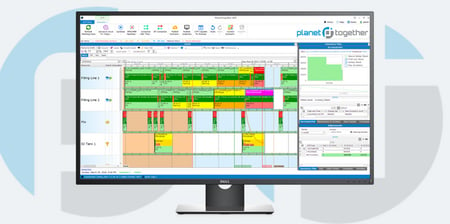
Key Features of PlanetTogether and ERP Integration for Production and Inventory Control
To better understand the operational improvements made possible through integration, here are some of the specific features that this combination offers:
Automated Inventory Replenishment: Inventory control becomes more precise as PlanetTogether, using ERP data, can trigger automated alerts or reorder requests when inventory falls below a specific threshold.
Shelf-Life Tracking and First-Expired, First-Out (FEFO) Inventory Management: PlanetTogether, integrated with an ERP, enables a FEFO approach, ensuring that items close to expiration are prioritized for production and shipping. This is particularly useful in food and beverage settings to prevent waste.
Real-Time Performance Monitoring: Production planners can monitor Key Performance Indicators (KPIs) such as on-time delivery rates, production efficiency, and inventory turns through integrated dashboards, allowing for quick adjustments and continuous improvement.
Capacity Planning: Integrated systems allow production planners to visualize machine capacity and workforce availability, providing insights needed to manage resource constraints, avoid bottlenecks, and maximize uptime.
Scenario Planning: Planners can run “what-if” scenarios to assess the impact of changes in production volumes, lead times, or demand forecasts. This capability is invaluable when navigating uncertain markets and fluctuating demand in food and beverage manufacturing.
In the food and beverage industry, precision in production and inventory control can set you apart from the competition. Integrating PlanetTogether with ERP systems like SAP, Oracle, Microsoft Dynamics, Kinaxis, or Aveva allows production planners to make data-driven decisions, enhance visibility across operations, and adapt to market demands with agility.
By leveraging these capabilities, food and beverage manufacturers can improve operational efficiency, minimize waste, and ensure product quality, all while staying ahead of demand fluctuations and regulatory requirements.
Embracing advanced planning tools and seamless integration is no longer optional—it’s essential for success. By investing in integrated solutions, production planners can transform their approach to production and inventory control, ensuring that their facility operates at peak performance while delivering high-quality products to consumers.
Are you ready to take your manufacturing operations to the next level? Contact us today to learn more about how PlanetTogether can help you achieve your goals and drive success in your industry.










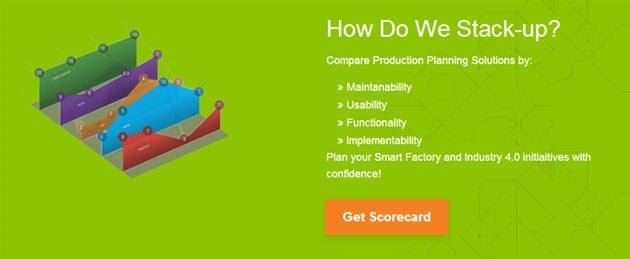


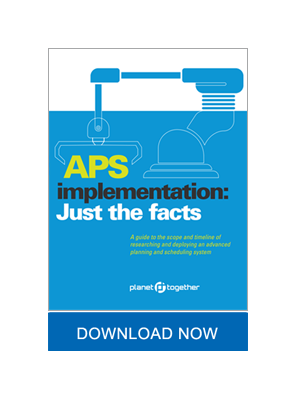
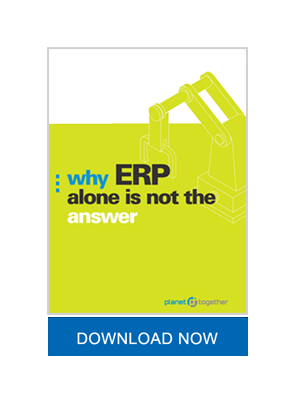







LEAVE A COMMENT